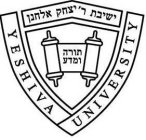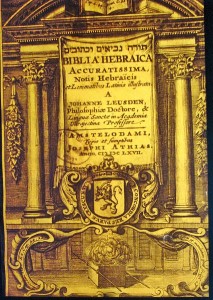The Dead Sea Scrolls and the History of the Jewish Book: Introduction
The complicated process whereby the biblical books took shape and were copied and transmitted in biblical times can only be partly reconstructed based on biblical evidence, with the help of ancient Near Eastern parallels. Clearly, the biblical era constitutes the first stage in the history of the Jewish book, or more correctly, The Jewish book, par excellence. However, for the period immediately following, the Second Temple period, the level of documentation for creating, editing/redacting, and copying and disseminating Jewish books is now enormous due to the discovery, publication and analysis of the Dead Sea Scrolls.[1] While this information relates directly to the period in which the Scrolls were copied, from the last part of the third century BCE through the early first century CE, it does allow us a model with which to supplement our understanding of the biblical period, and much of it is directly relevant to the rabbinic period in which most of the same scribal conventions were in use.
There is one fundamental difference in this regard between the Scrolls and the rabbinic evidence. The sect that gathered the Scrolls and… Continue reading
Second Yeshiva University Dead Sea Scrolls Seminar
 The second YU Dead Sea Scrolls seminar for the Fall 2013 semester will take place on Wednesday November 20, 2013 at 5:45 PM in Belfer 1214 on the Wilf (uptown) campus of Yeshiva University. The speaker will be Dr. Michael Segal, Senior Lecturer in Bible at the Hebrew University of Jerusalem and Editor of the Hebrew University Bible Project. His topic will be “Who is the ‘Son of God’ in 4Q246? An Overlooked Case of Early Biblical Interpretation.” The respondent will be Dr. R. Steven Notley, Distinguished Professor of New Testament and Christian Origins and Director of Graduate Programs in Ancient Judaism and Christian Origins at Nyack College in New York.
The second YU Dead Sea Scrolls seminar for the Fall 2013 semester will take place on Wednesday November 20, 2013 at 5:45 PM in Belfer 1214 on the Wilf (uptown) campus of Yeshiva University. The speaker will be Dr. Michael Segal, Senior Lecturer in Bible at the Hebrew University of Jerusalem and Editor of the Hebrew University Bible Project. His topic will be “Who is the ‘Son of God’ in 4Q246? An Overlooked Case of Early Biblical Interpretation.” The respondent will be Dr. R. Steven Notley, Distinguished Professor of New Testament and Christian Origins and Director of Graduate Programs in Ancient Judaism and Christian Origins at Nyack College in New York.
Please feel free to share this invitation with colleagues and students who are interested in the Dead Sea Scrolls.
If you plan on attending, we would appreciate if you could let us know ahead of time by responding to Amy Rotheim Sullivan at rotheims@yu.edu. You may also contact Amy if you have any questions.
Lecture: The Dead Sea Scrolls and the Hasmonean Dynasty
Yeshiva University Alumni Lecture Series Presents Dr. Lawrence H. Schiffman
“The Dead Sea Scrolls and the Hasmonean Dynasty”
Monday, December 2nd, 2013
12:15- 1:30pm
Lunch will be provided
Hosted by Jay Zachter ’88YC, ’88BR
Standard and Poor’s
1221 Avenue of the Americas
(Between 48th and 49th Streets)
Room 208
New York, NY 10017
Please register by Wednesday, November 27, 2013.
The lecture is open to YU alumni and friends.
More information at YU Alumni Affairs.


